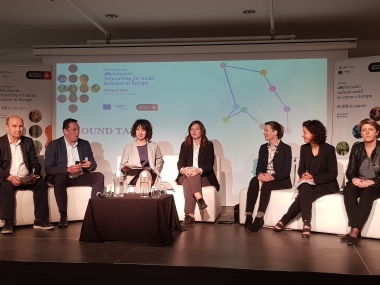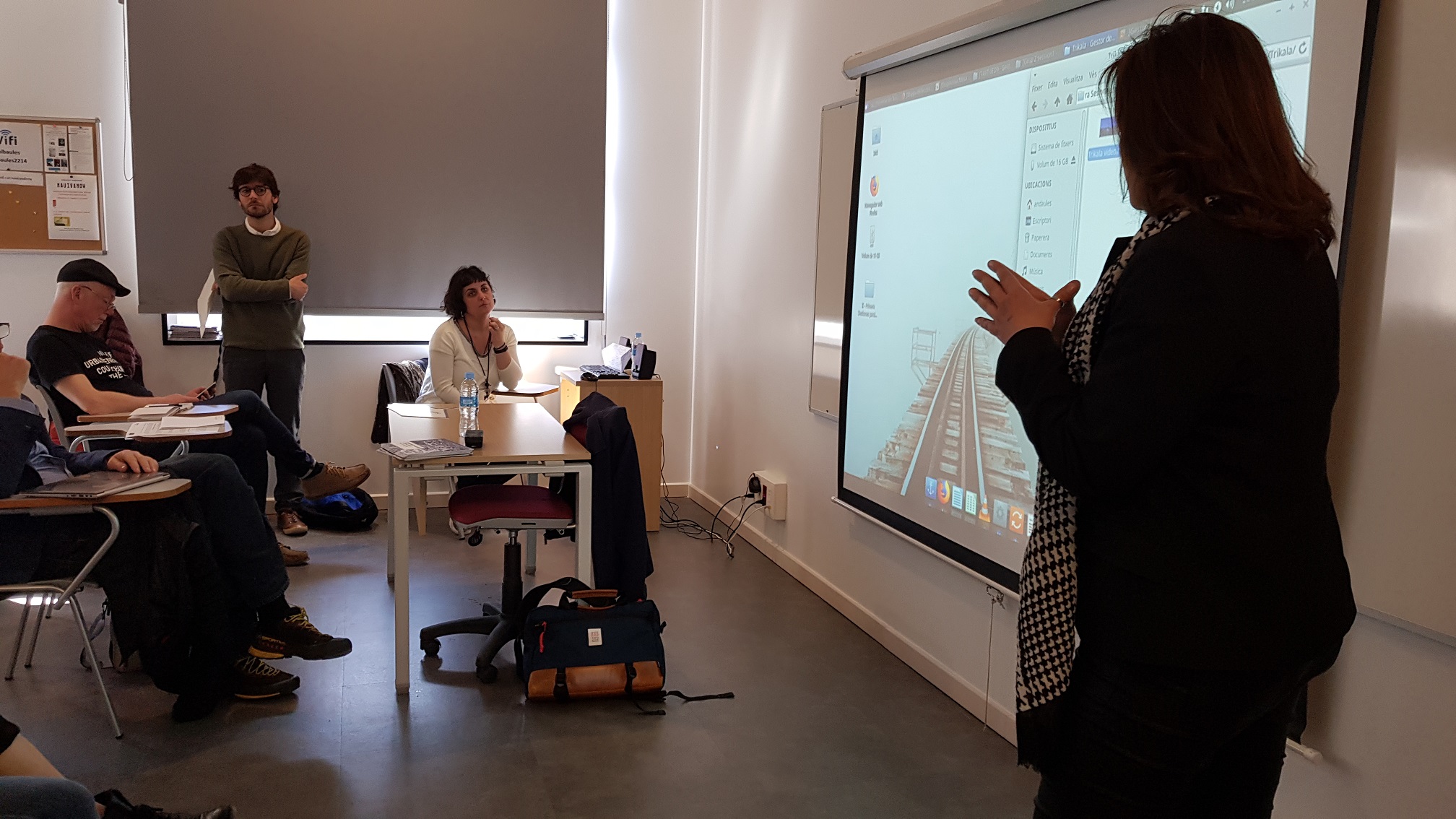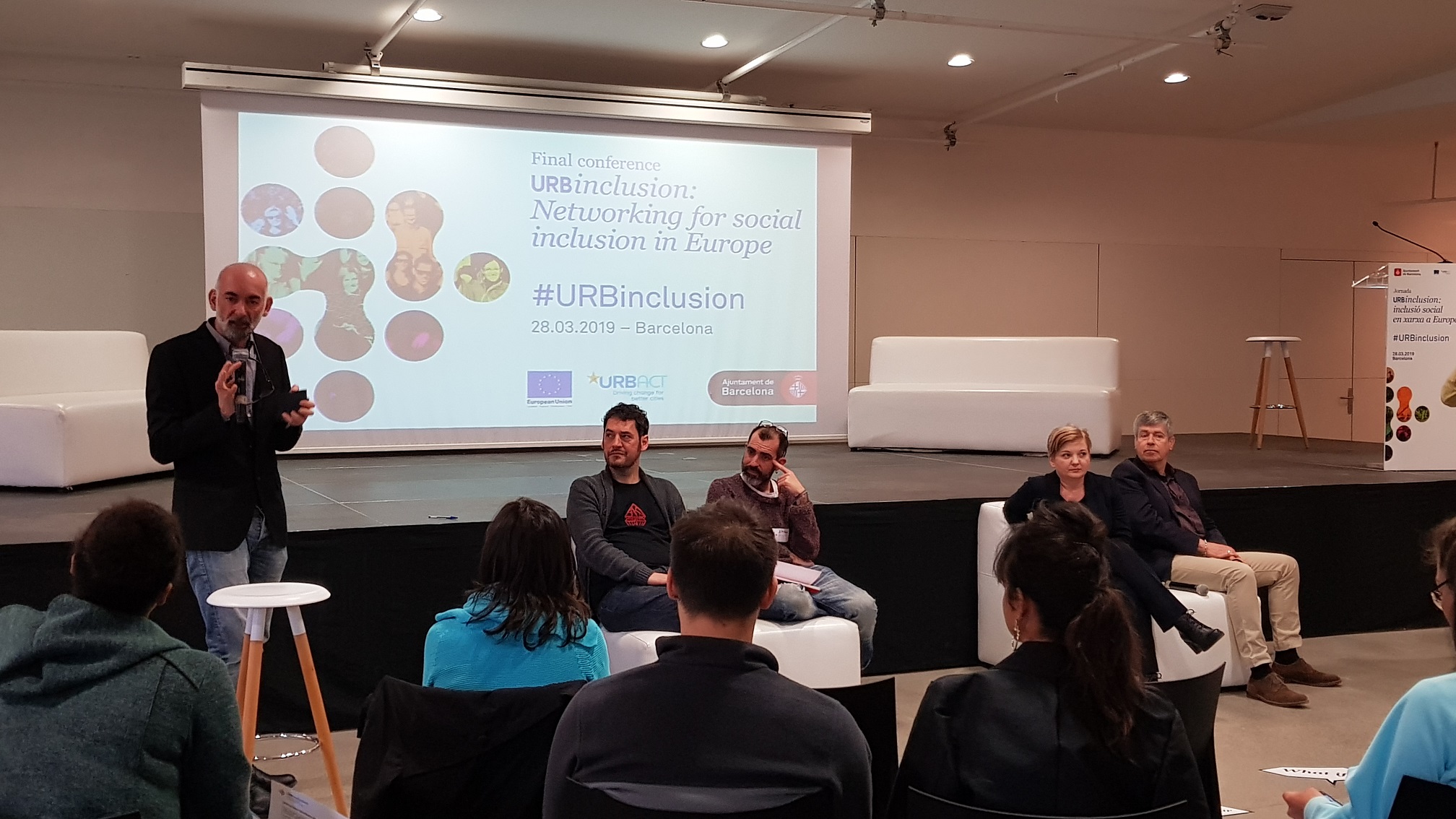The URBinclusion final conference: Networking for social inclusion in Europe
Edited on
20 May 2019By Massimiliano Rumignani, Sebastià Riutort, Marc Caballero – Barcelona URBinclusion team.
The “URBinclusion final conference: Networking for social inclusion in Europe” took place in Barcelona on the 28th of March. It involved civil servants, technical and political representatives from the Network nine cities in addition to URBACT network representatives and several local and international actors and stakeholders.

The aims of the event were to present the current outcomes of this innovative URBACT Implementation Network, facilitate on the one hand the interchange of information about case examples and solution stories among partners cities and participants, and on the other one, a political assessment and commitment by partner cities in relation to the co-creation of new implementation solutions for combatting poverty in deprived urban areas considering URBinclusion main challenges.
The conference took place at Fabra i Coats compound in Sant Andreu district, in which it is located the neighbourhood Barcelona municipality is focusing on in the framework of this project. The seven local initiatives, whose representatives are involved in the Barcelona URBinclusion Local Group, are all ongoing in this area.
Participants were welcome by URBinclusion Network project coordinator and manager, Mr. Lluis Torrens and Mr. Sebastià Riutort, from the Barcelona Municipality Area of Social Rights, who highlighted the importance of the URBACT programme and its networks to support European cities in implementing their social policies and improving their effectiveness through a constructive interchange - they pointed out that this conference aimed to provide a contribution to this framework.
Torrens and Mr. Sebastià Riutort, from the Barcelona Municipality Area of Social Rights, who highlighted the importance of the URBACT programme and its networks to support European cities in implementing their social policies and improving their effectiveness through a constructive interchange - they pointed out that this conference aimed to provide a contribution to this framework.
Ms. Anais De Muret presented the URBACT program data, activities and aims. Special attention was given to the specificities of the innovative Implementation Networks, such as URBinclusion, aiming to develop intelligence on how to better implement sustainable urban development projects and their key goal of producing joint and tested concrete solutions and policy instruments. She confirmed that at the end of 2019 there will be the presentation of programme outputs of these networks, through a good practices database coming from the 36 city partners involved and looking at their implementation challenges.
The Network lead experts, Ms. Anamaria Vrabie and Mr. Lorenzo Tripodi, presented the existing and main outcomes including the last draft of Urbinclusion Manifesto which gathers the main recommendation from project partners in order to design and implement strategies to combat poverty in European cities. Experts explained its components one by one, including its shape (a loop, representing the conception of a continuous process) and the fact that monitoring and evaluation is situated in the center.
Experts explained its components one by one, including its shape (a loop, representing the conception of a continuous process) and the fact that monitoring and evaluation is situated in the center.
A bright contribution by Mr. Fernando Barreiro, URBinclusion passed away and greatly appreciated previous Lead Expert, was read: “We should take into account that not all the partners are facing the same issues within each implementation challenge, that not all the partners have the same background on the different challenges and that not all the challenges have the same priority for each one of the partners. These conditions require a very flexible, diverse and creative process of exchanging and learning. We should take in consideration the different needs and priorities of the different URBinclusion partners ensuring so that all of them get a real added value by participating in the network.”
The following part of the conference consisted of six parallel sessions involving three cities each, lead experts, and Barcelona team representatives as facilitators and many local actors. “Case examples” and “solution stories” were presented and the key aspects of the implementation challenges faced by each city in relation to them were discussed. Cities used videos and presentations that provided key insights and analysis to participants. Cities were grouped as follows: Group 1: Barcelona, Glasgow, Timisoara; Group 2: Turin, Copenhagen, Trikala; Group 3: Naples, Lyon, Krakow. These sessions resulted being very dynamic and promoted a constructive interchange of views, experiences and possible solutions among the participants that most probably will contribute to a better understanding for practitioners of how facing their implementation challenges in the future.
facing their implementation challenges in the future.
The final part of the conference was an animated roundtable discussion with the following technical and political representatives of six partner cities: Mr. Farkas Imre, Deputy Mayor - Timisoara (RO), Mrs. Laia Ortiz, Second Deputy Mayor, in charge of the Area of Social Rights - Barcelona (SP), Mrs. Paola Pisano, Counsellor of Innovation, Smart City and Participation Services - Turin (IT), Mr. Konstantinos Psichos, Deputy Mayor of Social Affairs and Solidarity - Trikala (GR), Mrs. Sia Boesen, Chief Project Officer Integrated Urban Renewal South Harbour, Technical and Environmental Administration - Copenhagen (DK), Mrs. Corinne Aubin Vasselin, Director of the Housing division - Metropolitan Lyon (FR). In spite of their different characteristics and situations they clearly agreed on the importance of promoting stronger dialogue and collaborations among EU cities that are facing common challenges such as the growing inequalities among their citizens and the different neighbourhoods and the risks that these imply for our democratic systems. They emphasized the importance of jointly finding and testing new solutions and effective implementation methodologies for these emerging and growing problems, through a key and effective interchange of good practices focusing on poverty and social inclusion.
Submitted by Massimiliano Ru... on
